#the roots of consciousness
Explore tagged Tumblr posts
Text

Jeffrey Mishlove - The Roots of Consciousness - Random House - 1975 (cover illustration from a painted sculpture by Vijali)
#witches#conscious people#occult#vintage#the roots of consciousness#random house#roots#consciousness#psychic#psychic liberation#psychology#past-life#jeffrey mishlove#fond du lac#1975#vijali
29 notes
·
View notes
Text
Having more thoughts about Shen Jiu because of course I am.
I don’t think he has the capacity for empathy or genuine selflessness.
He spent the entirety of his formative years deep in survival mode, and because of that, he evaluates people solely based off of how they might threaten or ensure his safety and/or comfort. As far as individual people themselves with their own perspectives… honestly I don’t think he even thinks of that.
Maybe a controversial opinion, but I don’t think even YQY is exempt.
Shen Jiu doesn’t have a moral code. When every day is spent on surviving, a moral code is a luxury.
And really, he just never got out of that mode. See, the thing is, once you’ve had enough adverse experiences it only takes a little bit to trigger you back into that mindset. Shen Jiu was used to being scolded and then beaten or abused, so for him, even a simple chiding is a precursor to abuse— even if he DOES recognize that nothing more will happen, his body and mental patterns will still go into that preparation time.
So of course he never left survival mode, because even if nothing is actively happening, your mind will keep reinforcing those patterns.
For someone with a normal upbringing, as far as I can tell, empathy is something you learn and develop from those around you. Many seem to think it’s something innate and natural and if you don’t have it then there’s something wrong with you from birth. I think Shen Jiu falls into exactly this category of thought— and so he doesn’t even consider that he could try to learn and develop it as a skill he can perform, even if it doesn’t come naturally.
Of course, would he even try? He hasn’t been given any incentive. Any time he has tried to do something good, he ends up getting hurt (saving Yue Qi leading to being taken by QJL) or misinterpreted and admonished (the well ghost incident, keep in mind my earlier point about scoldings perpetuating the same patterns).
So he stays in that same vicious cycle, perpetually in survival mode and unable to escape, even in a relatively secure position (see: his paranoia).
Now, this is all relevant to the discussions of SJ’s feminism, misogyny, and/or lack thereof. I feel like a lot of discussions aren’t really getting the full picture.
SJ sees people, no matter who they are, as solely how they can affect him. Just because this isn’t exclusive to women, or because if comes from a reasonable place, does that really mean it doesn’t play into misogyny?
Let’s take another angle.
I think his abuse of LBH and other talented disciples also is rooted, deep down, in this same issue. He’s not just hurting LBH only to hurt him, his aim is specifically to stunt his cultivation. There’s jealousy at play there of course, but there’s a bit more layers to it too— SJ doesn’t think he’s capable of goodness. So reasonably, he’ll be a bad teacher. He already knows what happens when someone becomes more powerful than their oppressor. LBH may be a child now, but a part of SJ whether he acknowledges it or not sees him as a future threat that needs to be treated as such.
It’s rooted in fear— because everything is with SJ.
So does that mean it’s not actually abuse?
No. The behaviors he shows are still abusive, the reasoning just gives a lens for understanding.
Now, with his views on women— I mentioned in the tags of my original post that I don’t think he views women as people. This is based in that earlier idea of how he interprets others based off their risk and benefit to him. For women specifically, though, there’s another layer.
Shen Jiu grew up in a society where women are inherently lesser— and he grew up in an extreme version of this. He saw women being treated as property firsthand(both as slaves, as well as QJL’s views on his sister). Your worldview is shaped by the world that you view during those early years. Whether he agreed or not, SJ would still take on the patterns of his environment. This, though, is just the same as general societal misogyny and ingrained bias. I don’t think he’s any different than anyone else in this way.
But where SJ’s particular flavor comes in is that to him, women are a source of comfort. For various reasons— positive past experiences, less threatening (or at least don’t carry the dangers men do). He craves comfort— needs it really, because he doesn’t get it and his cortisol levels are always so high they’re poisoning his body. Women are the best source of that comfort for him.
It’s not that he likes them— at least, not any more than someone would like drinking water, or a coat in the winter. They’re fulfilling a survival need for him.
That is what the objectification is where SJ is concerned.
So… is it misogyny?
I’d say yes, in a way it still is. It’s not violent, and it doesn’t come from some inherent sense of “superiority as a man” but at the core of it all, he’s still not viewing women as people, and he has no interest in changing the status quo, because it benefits him to be able to go purchase comfort at a pleasure house, even if it’s not what people usually do there. The picture is bigger than just misogyny, but the traits taken as themselves are misogynistic nonetheless.
I could go into his specific relationships with women and how that informs his character, but this post is already long enough. We know that he mentally divides people by sex, and that distinction has a lot of weight in his judgment of them. Even if it comes from a place of trauma, even if it comes from a general worldview that applies to everyone, he still views women as a commodity— so on some level, and from an outside perspective, he is misogynistic.
In the end, though, it still all comes from him being stuck in survival mode. His lack of empathy, his viewing others as risks and benefits— these things themselves aren’t moral failings— it’s just a consequence of his environment. He’s a bad person because he won’t confront this, develop a moral code, and act on it, not because he doesn’t experience empathy.
But in his circumstance, there’s not really a chance for him to choose to be good. Because he’s still trying to survive, and goodness is a luxury he doesn’t realize he can afford now.
He’s scum, but pitiful, you know?
#svsss#svsss meta#zhuixing meta#shen jiu#listen I’ve been through a lot of shit and I project on this dude a lot#so ymmv on how you interpret the character but this is just how I see him#and honestly that’s ok! characters aren’t people so everyone can interpret them differently and they CAN be different from person to person#but also… I think the ‘is sj misogynistic’ answer really comes down to what you consider misogyny#is it the motives or the actions 等等#I think the way it affects those around him is most important and therefore yes he is#but others may say the source is too different and the motives are different#and tbh other views are valid#it’s a grey line area#anyway#none of the replies to my post really encapsulated the root to it as I see it#also before you come at me I literally AM the ‘no empathy and views people as risk vs benefit’ in the post#I just try really hard to have a moral code#and consciously think about not harming/helping others#sj is just someone who DOESNT do that
126 notes
·
View notes
Text
Really late, but here's my ekuoto chapter 70 commentary. Nothing special, just me freaking out. You know. The usual.
Watch out for spoilers!
Dante got a very special dialogue balloon with "..." in it. Which is curious to me. I'm sure it means some sort of reflection or surprise happening within him; I really want to what he's thinking. How do you feel? Knowing that the that child you were entrusted can't even bear to be awake anymore? That he runs to escapism? Must suck. Anyway.
On the other hand, dearest Daniel is real composed. Good job on getting info out of Belphegor. That's not really a high bar, though lmao... I mean, how are you a demon and can't LIE? Embarrassing... Go back to demon high school or something. Fall from grace again! The whole premise of your existence is being a lying thing that leads people to sin, and you're here having communication issues??? Dude. That's so moe.
Everyone thinking Belph's got something up his sleeve is fucking hilarious. No. Sorry. He's not Kira or anything like that. It's not all according to his "keikaku". He's just kinda dumb and suffers from Villain Monologue Syndrome...
Him saying "my witch", though... ough! (takes critical hit)
Really funny how he showed him off sleeping and everything. Why are you bragging? Is this something to show off? I guess it is for you... I'd be embarrassed if all my coworkers suddenly saw me sleeping on a plasma 100" inch TV, though. Maybe have a little consideration! Also, I don't think anyone's mentioned this before, but I think it's a cool detail that Priest's in a fetal position. Not only does this position bring one comfort, but it can also represent how he's about to be "reborn" as a witch of Sloth. The sphere he's sleeping in can kinda be a uterus, right?

Belphegor and Mikhail replying to each other while Leah was suffering out of confusion was funny. She got the straight man role forced onto her. Miha's "I see!" was cute. Very casual, as if he wasn't talking to a Demon Lord lol. To be fair, Bel is not really intimidating.
Meanwhile, Vir is busy trying to lead his shounen manga team to victory... (or not really.) They'll definitely get some piece of Belphegor though. I wonder what it'll be... he doesn't have anything like Asmodeus' eyes sticking out, so this is a mystery to me.

Me when I get excited about an interest of mine and end up yapping too much
Dante and Vergilius are heading to the same place, so they'll meet up again... I'm looking forward to the mess that comes out of that 👀.
Imuri needs to step up her game, or I'll be taking matters into my own hands because this is ridiculous. Femme Fatale? Wtf are you talking about. Fraudmuri. The Demon Lord of Fraud. Her true title.

Her biggest crime so far is being more in love with the idea of being in love with Priest than actually caring for him. Does that make sense? So far, she hasn't done any effort in actually coming to know him. She needs to KNOW!!!! At least I can respect that she also takes male rivals seriously... and her aggressiveness towards them. Lole.

She doesn't call Priest "sleepyhead" in the JP raws. I don't really mind the addition, but I thought it was worth noting here anyway. Makes it cute.
"It'll be over soon" Naw bro Imuri is coming at you with a fucking sledgehammer. Watch out.
Tiny Imuri is so fawking cute. I've been craving these Imuri flashbacks for forever because we know virtually nothing about her. What moves her. Why does she long to love!! We'll know in due time, I guess. But please show me a bit of it, Aruma-sensei...
Asmodeus being considerate enough to make sexual things vague to Imuri is nice, but it confuses me a bit. Well. I shan't dwell on it, lest my head blows up.
Imuri seems to have some complex about being a demon with no demon power, because she keeps asserting that she is a demon? Am I explaining this properly? Like in this chapter (ch.70) and chapter 3.

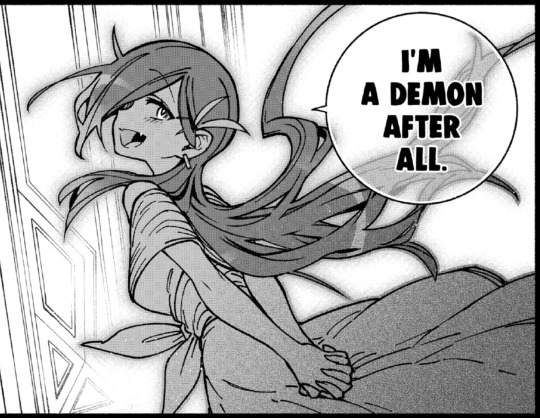
Anywho.
Imuri imagining the BL route... save me... my fucking sides... I burst out laughing the first time my eyes laid on that panel. True to her succubus nature, she didn't even consider the possibility of them using blood or whatever else instead of straight-up KISSING. Those are still bodily fluids, right?? Calm down, girl! Stay put!!!
"I'm not letting his first kiss go to some guy that just appeared!!" HE'S BEEN THERE FOR A DECADE! YOU ARE THE NEWCOMER!!! IMURI, GIRL!! You absolute buffoon! Clown, even!
Whew. Lmao.
This arc also feels like a callback to that one "sleeping beauty" comment from chapter 3.

...except their roles have switched.
This time, Imuri will be the one kissing Father on the cheek to wake him up, and it'll be so, so cute. Trust. Trust me. This will happen. (Going insane).
Go and make him your witch, Imuri... Dew it... Make a move... (screaming and crying)
#make the exorcist fall in love#ekuoto#exorcist wo otosenai#Anyway I'm holding myself back but I really liked the BL-ness of the chapter. Thank you God (Aruma-sensei).#Plushiebana was also super cute doing her best to stay awake#Mammon won't help you now though sorry#It's still pretty amazing she held on onto consciousness while actual clergymen fell asleep pretty quickly. Sasuga my evil corpo girlboss#Im kind of rooting for Priest to become a witch even though it wont actually happen#I just want to see him in a cute little witch outfit#amotalk
22 notes
·
View notes
Text
The Unofficial Black History Book
Huey P. Newton (1942-1989)

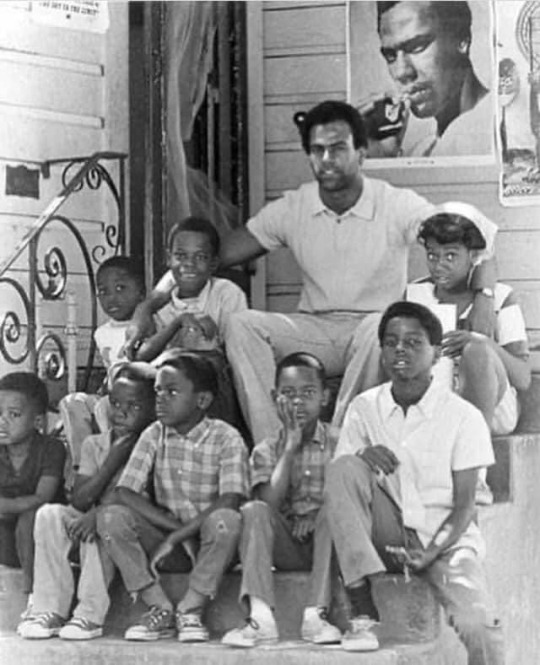
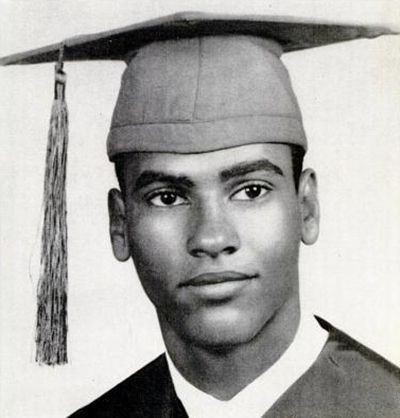
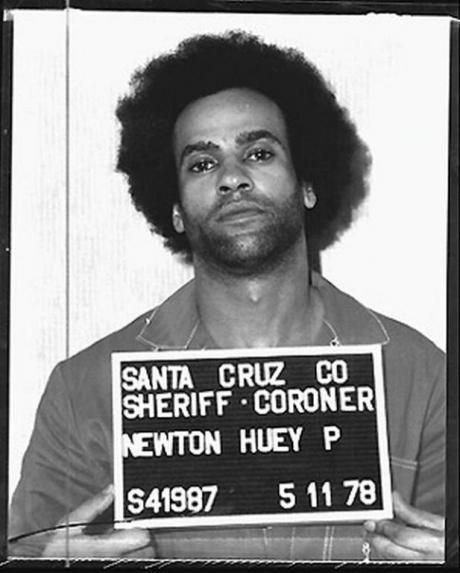

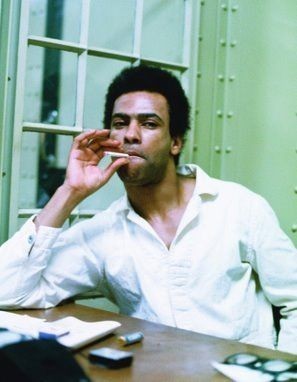
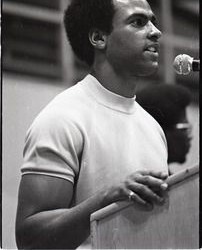
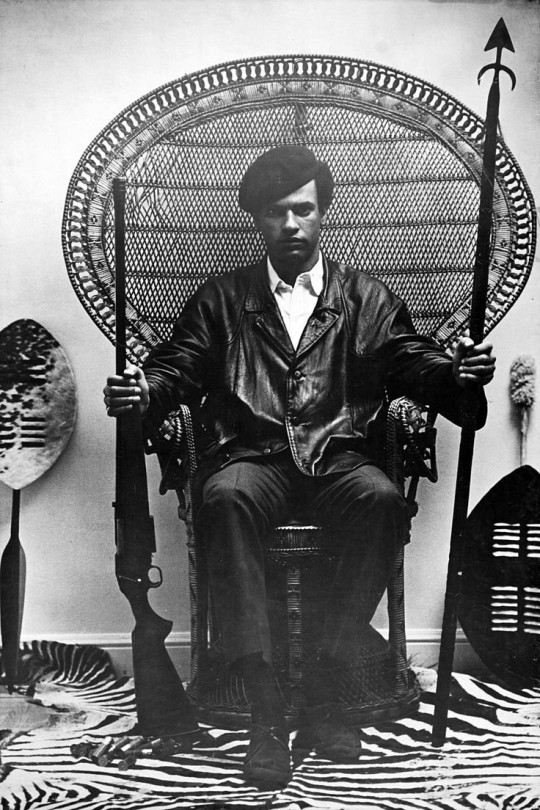
'The Revolution has always been in the hands of the young. The young always inherit the revolution.' - Huey Newton
This is his story.
Huey Percy Newton was born on February 17th, 1942, in Monroe, Louisiana. The youngest of seven children to Armelia Johnson and Walter Newton, he was named after former Governor of Louisiana, Huey Long.
His family relocated to Oakland, California, in search of better economic opportunities in 1945. His family struggled financially and frequently relocated, but he never went hungry or homeless.
Growing up in Oakland, Newton recalled his white teachers making him feel ashamed for being African-American, despite never being taught anything useful. In his Autobiography, ‘Revolutionary Suicide’, he wrote – “Was made to feel ashamed of being black. During those long years in Oakland Public Schools, I did not have one teacher who taught me anything relevant to my own life or experience. Not one instructor ever awoke in me a desire to learn more or to question or to explore the worlds of literature, science, and history. All they did was try to rob me of the sense of my own uniqueness and worth, and in the process nearly killed my urge to inquire.”
He also had a troubled childhood; he was arrested several times as a teenager for gun possession and vandalism.
Huey was illiterate when he graduated from high school, but he taught himself to read and write by studying poetry before enrolling at Merritt College.
During his time there, he supported himself by breaking into homes in Oakland and Berkeley Hills and committing other minor offenses. He also attended Oakland College and San Francisco Law School, ostensibly to improve his criminal skills.
He joined Pi Beta Sigma Fraternity while still a student at Merritt College and met Bobby Seale, a political activist and engineer. Huey also fought for curriculum diversification, the hiring of more black instructors, and involvement in local political activities in the Bay Area.
In addition, he was exposed to a rising tide of Black Nationalism and briefly joined the Afro-American Association, where he studied Frantz Fanon, Che Guevara, Mao Zedong, E. Franklin Frazier, James Baldwin, Karl Marx, and Vladimir Lenin.
Huey had adopted a Marxist/Leninist viewpoint in which he saw the black community as an internal colony ruled by outside forces such as white businessmen, City Hall, and the police. In October 1966, he and Bobby Seale founded The Black Panther Party for self-defense, believing that the black working class needed to seize control of the institutions that most affected their community.
It was a coin toss that resulted in Newton becoming defense minister and Seale becoming chairman of the Black Panther Party. Newton’s job as the Minister of Defense and main leader of the Black Panther Party was to write in the Ten-Point Program, the founding document of the Party, and he demanded that blacks need the “Power to determine the destiny of our Black Community”. It would allow blacks to gain “Land, bread, housing, education, clothing, justice, and peace.”
The Panthers took advantage of a California law allowing people to carry non-concealed weapons and established armed patrols that monitored police activity in the Black Community.
One of the main points of focus for the Black Panther Party was the right to self-defense. Newton believed and preached that sometimes violence, or even the threat of violence, is required to achieve one's goals.
Members of the Black Panther Party once stormed the California Legislature while fully armed in order to protest the outcome of a gun bill.
Newton also established the Free Breakfast for Children Program, martial arts training for teenagers, and educational programs for children from low-income families.
The Black Panthers believed that in the Black struggle for justice, violence or the potential for violence may be necessary.
The Black Panthers had chapters in several major cities and over 2,000 members. Members became involved in several shoot-outs after being harassed by police.
On October 28, 1967, the Panthers and the police exchanged gunfire in Oakland. Huey was injured in the crossfire, and while recovering in the hospital, he was charged with killing an Oakland police officer, John Frey.
He was convicted of voluntary manslaughter the following year.
Huey was regarded as a political prisoner, and the Panthers organized a 'Free Huey' campaign led by Panther Party Minister Eldridge Cleaver. And Charles R. Geary, a well-known attorney who was in charge of Newton’s legal defense.
Newton was found guilty of voluntary manslaughter in 1968 and sentenced to 2-15 years in prison. However, the California Appellate Court ordered a new trial in May 1970. The conviction was reversed on appeal, the case was dismissed by the California Supreme Court, and Huey was acquitted.
Huey renounced political violence after being released from prison. Over a six-year period, 24 Black Panther members were killed in gunfights with the police. Another member, George Jackson, was killed in August 1971 while serving time in San Quentin Prison.
The Black Panther Party, under the leadership of Newton, gained international support. This was most evident in 1970 when Newton was invited to visit China. Large crowds greeted him enthusiastically, holding copies of "Quotations from Chairman Mao Tse-tung," as well as signs supporting the Panther Party and criticizing US imperialism.
In the early 1970s, Newton's leadership of the Black Panther Party contributed to its demise. He oversaw a number of purges of Party members, the most famous of which was in 1971 when he expelled Eldridge Cleaver in what became known as the Newton-Cleaver split over the party's primary function.
Newton wanted the party to be solely focused on serving African-American communities, whereas Cleaver believed the party should be focused on developing relationships with international revolutionary movements. The schism resulted in violence between the factions and the deaths of several Black Panther members. The Black Guerrilla Family (BGF) was one of several factions that had broken away from the main party.
Then, in 1974, Newton was accused of assaulting a 17-year-old prostitute named Kathleen Smith, who later died, raising the charge to murder. Instead of facing trial, Huey fled to Cuba with his girlfriend at the time, where he remained for three years. The key witness in the trial was Crystal Gray. And three Black Panther members attempted to assassinate her before she gave her testimony.
Huey returned to the States in 1976 to stand trial but denied any involvement. The jury was deadlocked, and Newton was eventually acquitted after two mistrials.
In 1978, he enrolled in the History of Consciousness program at the University of California, Santa Cruz, and earned his Doctorate in 1980.
"War Against the Panthers: A Study of Repression in America," his dissertation, was later turned into a book.
On charges of embezzling Panther Party funds, Huey P. Newton was sentenced to 6 months in prison followed by 18 months on probation in 1982.
On August 22, 1989, Newton was assassinated by a member of the BGF, named Tyrone Robinson.
Huey was 46 years old at the time of his assassination. Robinson was convicted of Huey’s murder in 1991 and sentenced to 32 years to life in prison.
His wife, Fredricka Newton, carried on his legacy. 'Revolutionary Suicide,' his autobiography, was first published in 1973 and then republished in 1995.
Huey Newton was not perfect, but he did fight to protect the rights of the Black Community. The rights that we're still fighting for today.
__
Previous
Ruby Bridges
Next
Henry "Box" Brown
___
My Sources
#huey p newton#black community#the unofficial black history book#black activism#black history#black female writers#black history matters#black history is american history#black stories#black tumblr#black culture#history#writers on tumblr#writerscommunity#black power#black consciousness#black liberation#learn your roots#learn your history#black leaders#writeblr#black writblr#black writers of tumblr#black history 365#know your history#black panther party
95 notes
·
View notes
Text
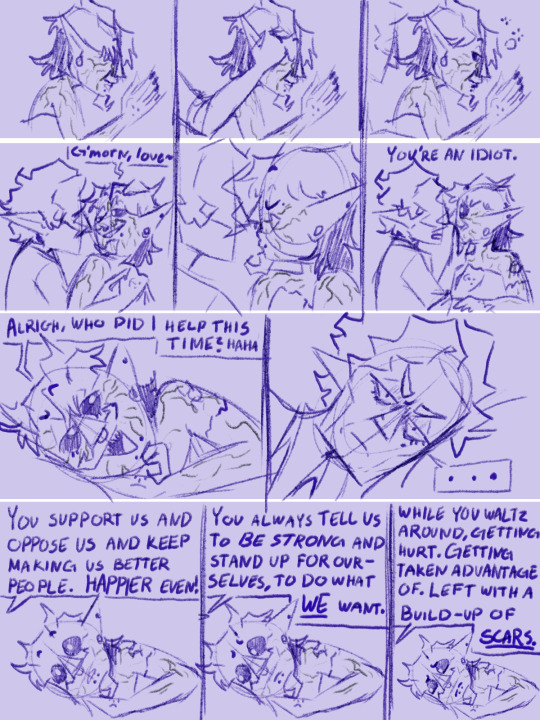
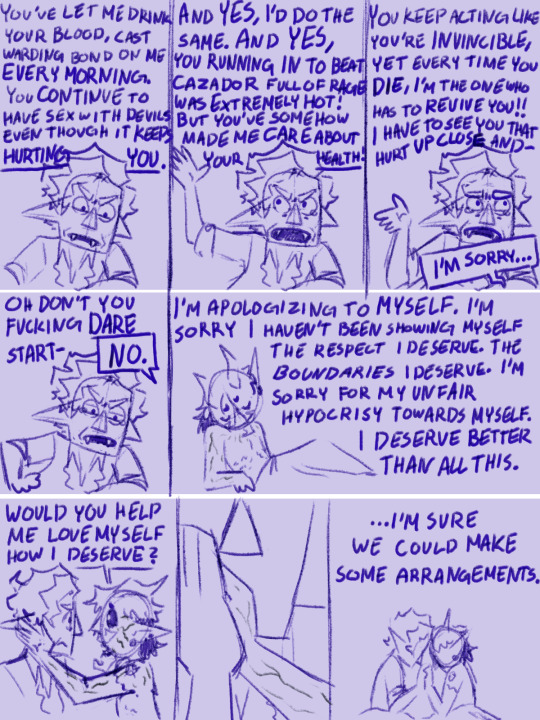
I’ve been making some choices in-game for the sake of accuracy to me irl, but they’ve started to catch up with me mentally ✌️✌️✌️
We’re working on it though, just gotta keep at it and learn how to stop myself more in the future 😤
#my art stuff#baldur's gate 3#bg3#astarion#tav#tiefling tav#astral-touched tadpole#special tadpole#bg3 act 3#act 3#act 3 spoilers#this is mainly touching on my irl self-consciousness about my veins#and I’ve had a rather troubled past causing me to become hypersexual#while also being heavily aro-ace#it’s caused a bad addiction to set roots and while I’ve been handling it okay irl lately#it’s starting to itch at the back of my head and seep into the game instead#I connect very easily with media when I hyperfixate and the world of the media feels like my own for however long I hyperfixate on it#so the things I’ve been doing in the game cus “they can’t actually harm me” there have started to harm me anyways#or at least I think so#i keep actively thinking about the choices before I make them#and my curiosity causes me to make the choices on a scrap save that I throw out after#but sometimes a lil voice in the back of my head goes “that wasn’t that bad - let’s keep it cus I WOULD do this if it were me irl”#and then I get too stubborn to change it before I’ve played enough that it would actually set me back a stressful amount to do so#I’ve been latching onto Astarion because I recognize parts of myself in him and helping myself is too hard sometimes so I help him instead#but I still deserve to help myself - especially when it’s extra hard to do so.#comic#mental health#serious conversation#a lot of my conversations are serious (even when they seem goofy on surface level) but still#sketch
34 notes
·
View notes
Text

RIP Krakoa 🌹 I can’t lie I’ve been kinda behind since midway through Fall of X I’m gonna catch up before my first SDCC this summer but I hear Vulcan didn’t see much action anyway. Anyway my hand slipped and I found myself looking into the eyes of my canonically psychotic son the best Summers brother who’s never done anything wrong in his entire life, (he’s done lotsa wrong things but I love him more for it)
#canonically psychotic = he canonically has psychosis. (not in the ableist way in that hes evil. which he is. lemme enjoy problematic rep)#Gabriel Summers#art by seaweed#words by seaweed#X-Men Red#the Gabriel hate during the Krakoa era pffffft. was 100% from ppl who didnt read the Rise and Fall of the Shi'ar Empire#“he attacked Storm” hes also a genocidal dictator who tortures ppl for catharsis. drunkenly coming at Ororo is the least bad thing he did#“he's a douche” mother of all understatements. now get this man back w his boyfriend who he forced to be his best man under pain of death#Gabriel fans LOVE that Ororo beat his ass. he deserved it. it was a fake discourse made up by a certain segment of goddess!Ororo fans#I say as an Ororo fan! Shes my fav A-list x-man🥰 yes Gabe was at a mental low but Ororo didnt know that. that was Scott's responsibility.#psychotic Emperor Vulcan is what we call a problematic mentally ill villain trope. I love him SO much. (okay lets talk)#we don’t know much about his childhood but we do know he spent 2 years in a fugue state after escaping slavers when he was like ten ):#as an “adult”-ish he's uh “mentally” 15 or sumn according to the calculations claimed to him by his hallucination of his actual child self#and apart from THOSE hallucinations. he’s very paranoid to the point of killing his advisors because he becomes convinced-#that they’re plotting to kill him. they aren't. he relies on Calseye to ground him thru his paranoia. and then of course in the Krakoa era#he believes his energy constructs of Petra and Sway who drink with him till he blacks out every single day are real. he isnt consciously#creating them; but he sees them- and bc he’s a godlike mutant his subconscious makes his hallucinations visible. making everyone uncomfy#Charles tries to use telepathy to FORCIBLY reality check him. which of course triggers his trauma. and GABE is punished for it?#(oh plus our finding out Gabe got brain surgery done on him by some gods outside the universe offpanel. he never does well with tampering)#and now the writers who pushed Hickman out (also RIP Sabretooth & the Exiles. RIP Hellions) want us to be SAD Krakoa is gone?#yes Gabriel is the mentally ill villain trope. but Krakoa never cared for mutants who couldn’t fit in. who were traumatized. disabled. etc#Alex OF ALL PEOPLE should understand that. ALEX should’ve been there for Gabriel. (why wasn't he. did he hold a grudge for past torture.)#Alex also w Murder-Enjoying Disorder but it was actually treated as an illness and those in authority presented as wrong for excluding him#instead of helping him. which v flawed but Hellions was one of the best mental illness comics? like Zeb Wells was conscious of the genre#but Gabriel was just… cast out. for panicking when his prime traumatizer Charles invaded his mind. he deserved help too#and all because his family were annoyed at him for drinking all night and throwing up and passing out on the floor? for being delusional?#And like- all of the summers brothers are nd (Scott's brain damage; Alex's dissociative episodes; Gabriel's psychosis)#I have nothing to say about Adam X ((I highly doubt he's neurotypical and/or mentally healthy)) ((nothing to say abt him tho))#and Gabes paranoia is 100% rooted in his issues of being made to feel like an outsider. like YES the obvious MUTANT identity but also#he thinks his father abandoned him to be a slave. he's not Summers enough for Scott. hes not Shi'ar enough for the Shi'ar
15 notes
·
View notes
Text
✨SOLOMON'S SEAL ROOT✨
Solomon’s Seal Root is a fantastic herb for protection, as well as any higher consciousness workings.
Element: Air Deities: Hermes, Mercury Zodiacs: Gemini Planet: Mercury Crystals: Amethyst, Howlite, Moonstone, Lapis Lazuli Good For: Success, healing, intuition, psychic abilities, ancestor and spirit guide communication, & more! Protects Against: Negaforces, watchers, & curses.
For more tips, tricks, tonics, and tintures check out the Wicked Witch's Web! 🌛🖤🌜
Source: The Wicked Witch of the Web
#Solomon's Seal Root#Solomon's Seal Root Herb#Solomon's Seal Root Magickal Correspondences in Witchcraft#Solomon's Seal Root Magical Correspondences#Solomon's Seal Root Magickal Properties#herbs#spices#the wicked witch of the web#wicked's herb grimoire#spell work#wicked's grimoire#green witch#potions#witchcraft#spells#Spell Craft#Wicked Tips#Craft Tips#Kitchen Witch#Spiritual Meaning of Solomon's Seal Root#Book of Shadows#Rituals#Tonics#Tintures#Protection#Spell casting#Higher consciousness#Spirit#Source#Gemini
8 notes
·
View notes
Text
Bloody Sunday Massacre anniversary is tomorrow. My dad grew up hearing from ill informed Americans about how it was an ‘age old religious conflict’ (those Protestants and Catholics never get alone). How the violence in the north, the arrests and raids and terrorizing was justified (they had to stop those awful carbombing IRA terrorists!). How it was impossible, the country had been conquered for centuries (why would they see freedom now? they lost the war. let it rest).
And of course, it isn’t completely free and perfect. This year I’ve seen the “Irish Unification of 2024” Star Trek meme a dozen times. It’s heartening to think that such a thing could be possible, by chance to coincide with a scifi show’s alternate history.
(But all I think of is Palestine. The lies and misinformation and the propaganda machine oiled in innocent blood.)
Even today you cannot publically display the names of the killers of the Bloody Sunday Massacre in the UK. The families of the murdered have yet to see justice. Some doubt they ever will.
(I think of the hundreds of thousands of Palestinians starving, grinding animal feed for flour in a manufactured famine.)
The Choctaw and Cherokee nations sent donations during An Ghorta Mor. The Sultan sent ships of food and aid only for the British to turn most away.
(I also think of the thousands of Gaeltacht after the language was pushed to the brink of extinction. I think of the homes built on ancestral land, no more landlords or laws prohibiting Irish claims. I think of the music and laughter and dance of my family who once fled as refugees of a manufactured famine - we call our cousins across the sea and sing Come Out Ye Black and Tans over choppy phone connections.
I think of a free Palestine, and I see it - because I can see a free Ireland, more free than she’s been in centuries, closer to unity than she’s ever been. It won’t be easy or pretty - it won’t end over night, or over a few years. But that never stopped the spirit of a people dedicated to their own liberation. I know because I’ve seen it, I’ve lived among the fruits of freedom.
We can hold their hand and say, we know your pain. We see your struggle. We understand the injustice your face. We are proof that it is possible to overcome these horrors and see days filled with peace and joy. We will walk with you.)
#ra speaks#personal#sorry can’t sleep need ta get this outta my head#obv there’s ~ nuance ~ but I’m just stream of consciousnessing this#ik ok ik the Irish gov ain’t been saints abt this but the people of Ireland have long stood w our Palestinian siblings in justified defiance#like what’s happening in Gaza is magnitudes more horrific than any crime committed in Belfast#but they have the same roots and motivations. it’s like an awful echo.#going to bed if you’re gonna be weird on this post overnight I’m gonna be really sad and disappointed in you
20 notes
·
View notes
Text
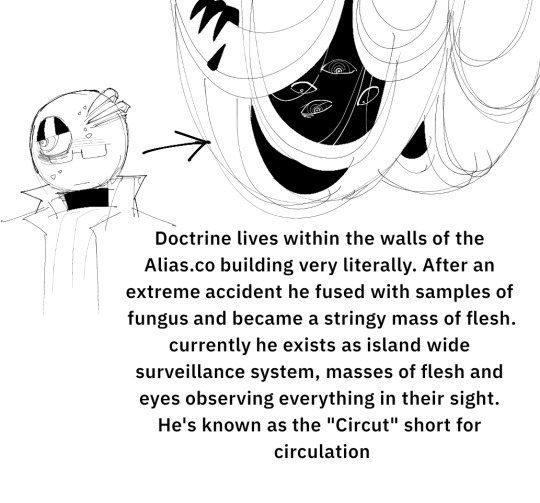
Doctrine, like Nures was exposed to concentrated madness and so to keep stable he removes and assimilates the brains of chosen donors (random citizens) to sustain his hivemind with fresh uncorrupted mind "the sanity drive" the Circut can transport people and items like blood, the fastest form of travel and also the most uncomfortable lol
A few places are untouched by the Circut, mostly seaside or full of unpleasant textures like forests and underground
#my ocs#doodle dudes#babbles cuz im bored#Doctrine is a hivemind where he completely assimilates the bodies and only his consciousness remains#hes also rooted all over the Alias co building as a biological security system#it's pretty hard to try escaping or breaking in without going under a vent by accident
12 notes
·
View notes
Text
✱ . AUGUST IN ACRYLICS / drabble
lapis and the masked guy were out ; their room was empty for now. sort of rare since they'd got here——usually at least one of them was in when he was, so the quiet left behind is all at the same time peaceful and a bit of a downer.
there's a bunch of reasons for this, probably.
for starters: all this time, and he's never really gotten used to being alone. sure, he'd left the village, and he'd definitely never been as surrounded by other people since, but he'd joined elusia's academy not too long after that——found hortensia. found goldmary. it didn't take much for them to be inseparable, all of them kinda with their own reasons for wanting to find some people they could feel close to. thinking of it like that, he really misses them.
. . .
he really, really misses them.
a wave of something powerful starts up just below his stomach, crests up over the bars of his ribcage like the tide, choppy and strong, tipped with white fingers that reach their salt into his throat and try to get all the way to elusia on the other side. his hand slows where it absently rubs a towel over the back of his neck, pauses as he stares distantly at and past the bed where lapis sleeps, imagines for a moment that his other friends might be in the other two on either side of him, and. . .
second: the times he has been alone haven't really been good ones. there's coming out of his village for one——those couple years he'd been trying to figure out what to do, where to go, the world was so big!, what do i even do with it?? and most of time it's ' do you always talk like that? ' ; ' what's wrong with your hair? ' ; ' oh you're like really... really intense. '
you know, nothing serious or anything. just little things that you don't worry too much about, that you can't say anything to in the moment except ' uh huh, yeah ' and don't stop to wonder later why something,
something,
kinda bothered you.
(⠀' were you raised in a barn?? '⠀)
the casual blow had been meant for him. but had struck lapis instead. . . and left her cracked and bleeding.
. . .
because by now, anyway, that sort of thing doesn't bother him much anymore. he knows people are gonna say what they're gonna say, think what they're gonna think, and there's really only so much he can change about himself.
but he also knows that there's so much to change about himself, so much to decide whether and how much he should or even wants to——that it's a fine, fine line between sacrificing too much of himself and making sure he can be well-liked, a fine, fine line between i dunno, never had this problem before and no one's gonna like me otherwise.⠀(⠀you never know if a friend gets hurt because of it otherwise.⠀)
so what to change,
and how much,
and for what kind of reason. . .
. . .
lapis and the masked guy are out, leaving their room empty for now. four people, down one ; the empty bed lingering like a mark of absence——white, the color of deficit.
it's sad, thinking that ares won't be here for the rest of the month. with them, even though they'd gotten on each other's nerves, even though there's parts of him maybe he couldn't stand. with them, turning out the candles with a chorus of ' good nights ' at different pitches and moods, getting ready together in the morning, eyerolling at his little team snake cheers. thinks he'll miss the⠀" are you done with the sink yet?"⠀just a little bit.
. . . yeah! just a little bit.
"hope you can still have a blast, wherever you are ~ " he puts on his best face with hands upon both hips. like a dream still awaiting its dreamers with joy before it flies, a memorandum of affection.
"the rest of us, your room C——we'll give it everything we've got."
#◟ 🇼🇷🇮🇹🇮🇳🇬⠀ ╱⠀ ❝ ART COMES FROM THE ROOTS OF THE WORLD! ❞#TOAHappyland2024#absolutely no bearing on anything or rhyme or reason i was just inspired#an informal ode / reflection on events so far ig tho tbh i had not intended for introspection to be part of this when i started#i didn't have a direction tho i just wanted to write Something w ares' elimination bringing their room down one#which is why this is kinda disjointed and stream of consciousness-y but it sorta fits rosado i think so it works
17 notes
·
View notes
Note
aye
I have a question
what made you like fall in love with the bbg?
personally it was the Springtrap from SaD :'D
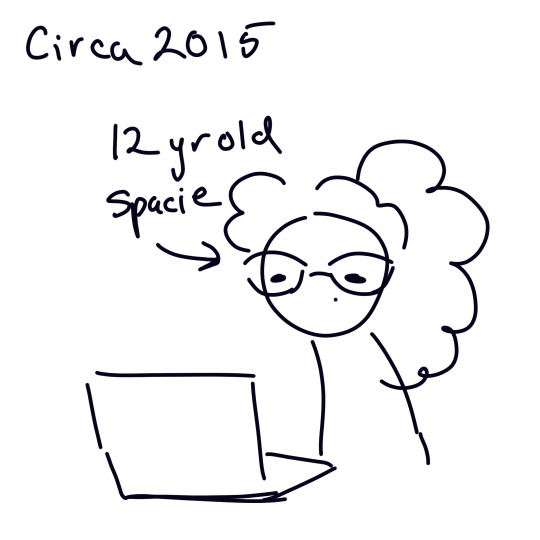



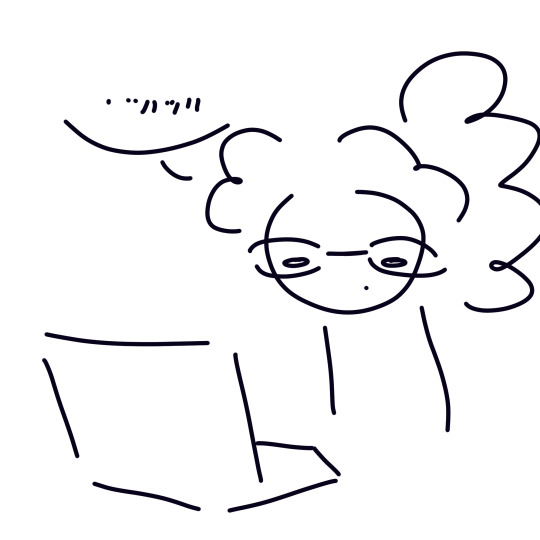
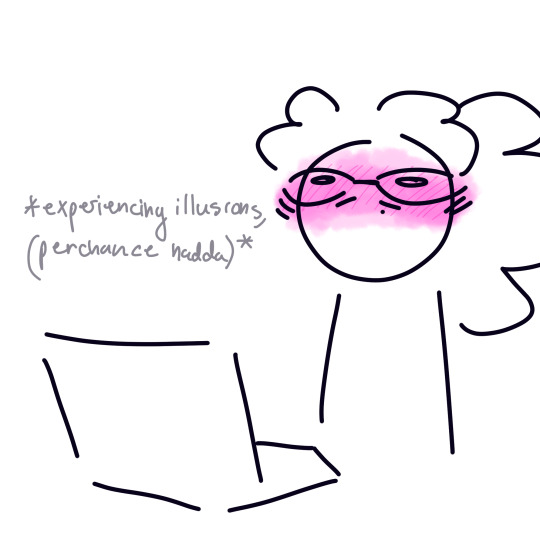
and then he proceeded 2 be the first character i ever drew self insert for hallelujah
#spacie splains#it went from: oh! cool design!#ta: oh.....‚‚‚‚‚‚‚‚......‚‚.‚#12 yr old spacie otherwise known as cookie dust#anyways#its too deep rooted in my consciousness ta get rid of him now#yeah and when i learned l8er ppl were theorizing he was the killer it had no impact on me whatsoever#LMAO#BRO IS BAAAAAAAAAAAAAAAAAAADDDDDD GYYYYYYYYYYYYYAAAAAAAAAAAAAAAAAAAAAT DAAAAAAAAAAAAAAAAAAAAAAAAAAAAAAAAAAAAAAAAAAAAMN#imagine that once scene from turning red that was actually me
54 notes
·
View notes
Text
I'm writing a RL: Roots fic and I can't stress this enough
This timeline makes no sense and it's pissing me off!!!!!!!!!!!!!
Like, wtf is this?


>"war is declared"
>spring 1914
Ayo? WWI started in fucking JULY. And in Belgium (where I assume the story takes place) even later, in August. Leonard? Hello?? Where are going, bro?
Let's go on


Ok, so my man Frank was saved in fall 1920... AND COULDN'T TAKE A BATH FOR A LEAST A MONTH? Either he was saved literally on November 30, or I'm not putting up w this bullshit.
And also this

>1926
>Frank w long hair & beard again
????????
At this point, just fuck you. I'm making my own timeline in the fic and to anyone who will ask why I'm showing this nonsense!!!!!!
#rusty lake#rusty lake roots#leonard vanderboom#frank vanderboom#this timeline is so annoying#the game is lit af but im just#fuck all this im consciously making things up#starting ignoring the canon timeline#pissed
57 notes
·
View notes
Text
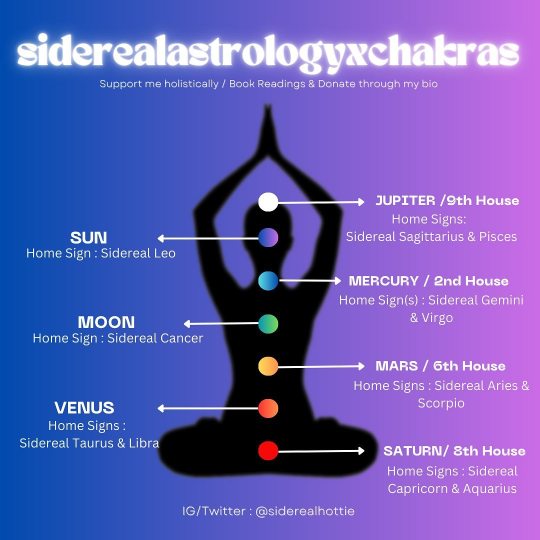
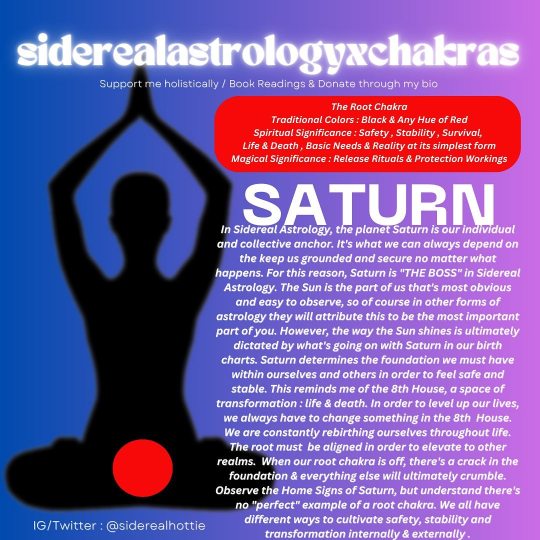
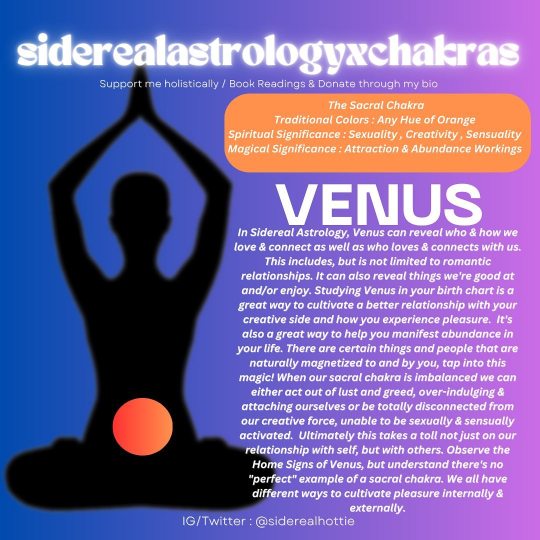
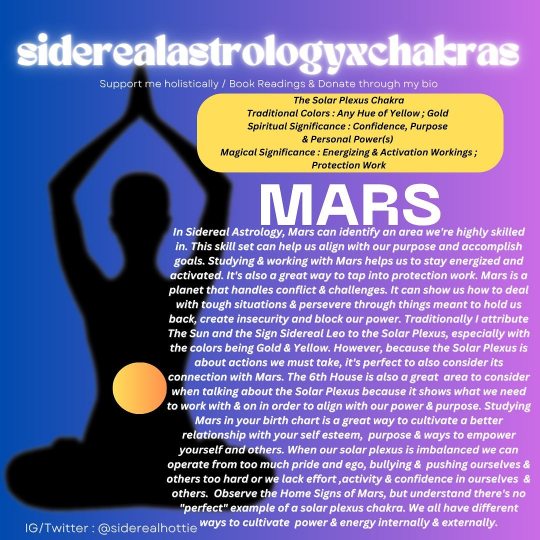
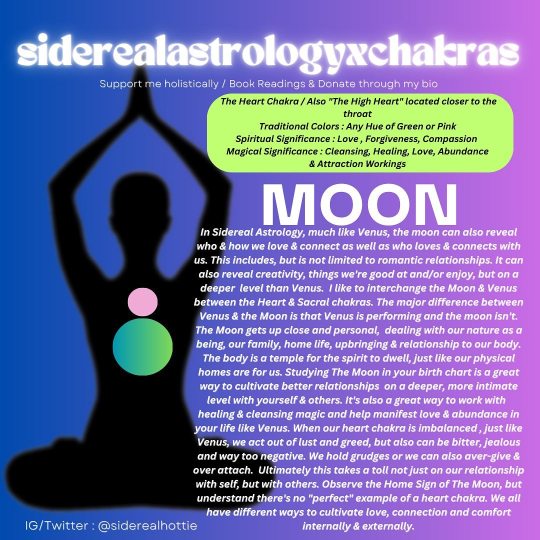
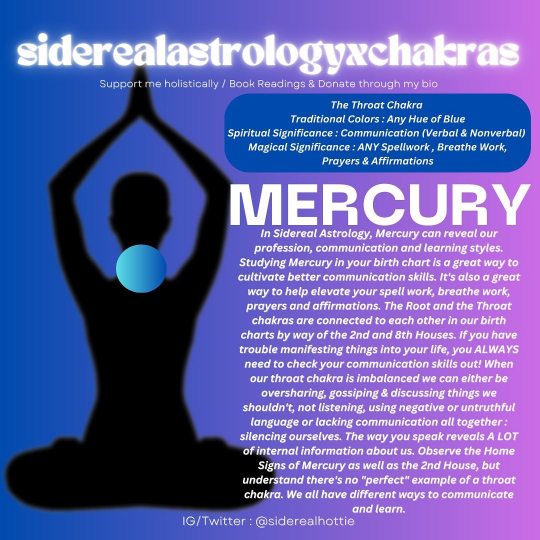

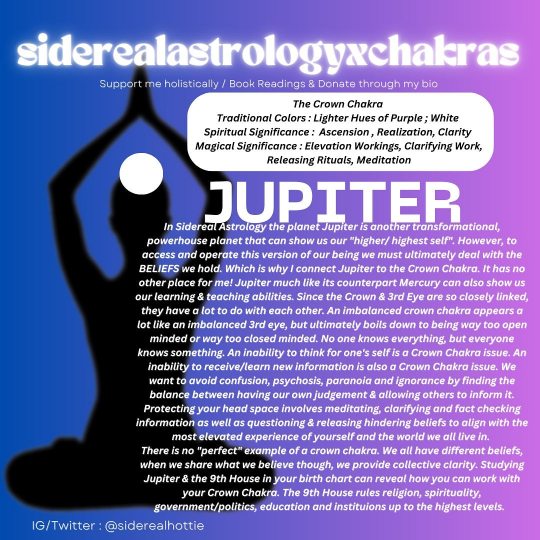

OG CAPTION :
By now you should know I cross reference things if you’ve been following since 2021. If not, get with the program 👩🏻💻This is an updated version of an older post. When you book a reading with me, these are the type of things we discuss. Many times when chakras are discussed “alignment” is also discussed. Understand alignment has to be maintained, you can be in a alignment today and misaligned tomorrow. We must constantly choose alignment. On top of that alignment looks different for everyone. This is how unique we are. Each chakra is a tier of reality that we’re able to exist on & tap into, but we must also understand that we need ALL parts of ourselves to be aligned. Its not a single chakra, zodiac sign or placement that makes or breaks us. Compartmentalize, but then put it all back together 💖🪄Read & Comment Your Favorite Slide
Found a typo? Ask yourself if the typo is more important than the information
#chakras#spiritual#spiritual awakening#consciousness#spiritualgrowth#mindfulness#root chakra#crown chakra#heart chakra#solar plexus chakra#sacral chakra#third eye chakra#crystals#jasper#energy#intuition#crystal magic#collective reading#collective consciousness#collective action#collective unconscious#spiritualism#spirituality#spiritual development#divination#astrology blog#sidereal astrology#astrology#astro community#astro notes
22 notes
·
View notes
Text
Little Aerynthara wip - that’s basically just an Aeryn monologue; exploration into how his fucked up brain works - I abandoned months ago under the cut. Not very good in the objective sense but I really think I nailed Aeryn’s voice.
“There is yet one thing about you that troubles me though. Something I need you to explain. When we killed the Tieflings at the Grove, I was not in control of my actions. You do not have that excuse. So, I ask you - why? Why kill them?”
“I wanted-“ His lighthearted smile falls, along with his eyes. He stares intently at a spot on the floor behind her for several seconds, brows knotted, literally biting his tongue. When his eyes meet hers again, the uncertainty in his features is clear. That, and something else, a manic, adoring glimmer in his grin, and the dilation of his stiletto pupils.
“When-when we first met, you were just.. Layin’ into this goblin, right? He had failed his assignment, and you… You leave no room for failure. You put the fear of the Absolute into him, without even uttering Her name. I-I could only stare, slack-jawed at your execution; your authority. And then. You did what I least expected, you turned to me, and your voice… Softened. And… You know about my amnesia. In the two days since the Nautoloid crashed - No one else had done that. Seemed happy to see… Me.” He gestures to himself, to the spots, the upturned nose, the curved, bladed ears that twitch defensively with contact.
“An alien. I mean, even my own people would-“ He shakes his head forcefully, scrunches his eyes shut, before staring bitterly at the floor again, a subtle quiver in his jaw, before composing himself, and fixing her with his reverent gaze once again.
“-But you greeted me with familiarity. Used our tadp- no, our connection to come into my mangled mind, to douse the blood red inferno with your cool caress.”
She remembers it differently. Remembers forcing herself into his mind with fingers of ice. There was no soothing coolness. Only domination, to ease the prying towards that which served her. But perhaps that is what he likes. He certainly speaks as if it is.
“You laughed. I-I don’t remember saying something funny, but you did.” She remembers. He’d hung on her every word, eyeing her like a lost child. It was pathetic, so she laughed at him. “I wanted to hear it again, over and over. And then you told me how, so… I did it. To impress you.”
#he may not consciously remember Gortash but that man has permanently altered his perception of the world himself and the people around him!#he has taken root in you and there’s no getting him out!!!!#oc aeryn#aerynthara#durge x minthara#your daily dose of idiocy#my writing#bg3#minthara#minthara x durge#ok to rb
7 notes
·
View notes
Text

B.7.1 But do classes actually exist?
So do classes actually exist, or are anarchists making them up? The fact that we even need to consider this question points to the pervasive propaganda efforts by the ruling class to suppress class consciousness, which will be discussed further on. First, however, let’s examine some statistics, taking the USA as an example. We have done so because the state has the reputation of being a land of opportunity and capitalism. Moreover, class is seldom talked about there (although its business class is very class conscious). Moreover, when countries have followed the US model of freer capitalism (for example, the UK), a similar explosion of inequality develops along side increased poverty rates and concentration of wealth into fewer and fewer hands.
There are two ways of looking into class, by income and by wealth. Of the two, the distribution of wealth is the most important to understanding the class structure as this represents your assets, what you own rather than what you earn in a year. Given that wealth is the source of income, this represents the impact and power of private property and the class system it represents. After all, while all employed workers have an income (i.e. a wage), their actual wealth usually amounts to their personal items and their house (if they are lucky). As such, their wealth generates little or no income, unlike the owners of resources like companies, land and patents. Unsurprisingly, wealth insulates its holders from personal economic crises, like unemployment and sickness, as well as gives its holders social and political power. It, and its perks, can also be passed down the generations. Equally unsurprisingly, the distribution of wealth is much more unequal than the distribution of income.
At the start of the 1990s, the share of total US income was as follows: one third went to the top 10% of the population, the next 30% gets another third and the bottom 60% gets the last third. Dividing the wealth into thirds, we find that the top 1% owns a third, the next 9% owns a third, and bottom 90% owns the rest. [David Schweickart, After Capitalism, p. 92] Over the 1990s, the inequalities in US society have continued to increase. In 1980, the richest fifth of Americans had incomes about ten times those of the poorest fifth. A decade later, they has twelve times. By 2001, they had incomes over fourteen times greater. [Doug Henwood, After the New Economy, p. 79] Looking at the figures for private family wealth, we find that in 1976 the wealthiest one percent of Americans owned 19% of it, the next 9% owned 30% and the bottom 90% of the population owned 51%. By 1995 the top 1% owned 40%, more than owned by the bottom 92% of the US population combined — the next 9% had 31% while the bottom 90% had only 29% of total (see Edward N. Wolff, Top Heavy: A Study of Increasing Inequality in America for details).
So in terms of wealth ownership, we see a system in which a very small minority own the means of life. In 1992 the richest 1% of households — about 2 million adults — owned 39% of the stock owned by individuals. The top 10%, owned over 81%. In other words, the bottom 90% of the population had a smaller share (23%) of investable capital of all kinds than the richest 1/2% (29%). Stock ownership was even more densely concentrated, with the richest 5% holding 95% of all shares. [Doug Henwood, Wall Street: Class racket] Three years later, “the richest 1% of households … owned 42% of the stock owned by individuals, and 56% of the bonds … the top 10% together owned nearly 90% of both.” Given that around 50% of all corporate stock is owned by households, this means that 1% of the population “owns a quarter of the productive capital and future profits of corporate America; the top 10% nearly half.” [Doug Henwood, Wall Street, pp. 66–7] Unsurprisingly, the Congressional Budget Office estimates that more than half of corporate profits ultimately accrue to the wealthiest 1 percent of taxpayers, while only about 8 percent go to the bottom 60 percent.
Henwood summarises the situation by noting that “the richest tenth of the population has a bit over three-quarters of all the wealth in this society, and the bottom half has almost none — but it has lots of debt.” Most middle-income people have most of their (limited) wealth in their homes and if we look at non-residential wealth we find a “very, very concentrated” situation. The “bottom half of the population claimed about 20% of all income in 2001 — but only 2% of non-residential wealth. The richest 5% of the population claimed about 23% of income, a bit more than the entire bottom half. But it owned almost two-thirds — 65% — of the wealth.” [After the New Economy, p. 122]
In terms of income, the period since 1970 has also been marked by increasing inequalities and concentration:
“According to estimates by the economists Thomas Piketty and Emmanuel Saez — confirmed by data from the Congressional Budget Office — between 1973 and 2000 the average real income of the bottom 90 percent of American taxpayers actually fell by 7 percent. Meanwhile, the income of the top 1 percent rose by 148 percent, the income of the top 0.1 percent rose by 343 percent and the income of the top 0.01 percent rose 599 percent.” [Paul Krugman, “The Death of Horatio Alger”, The Nation, January 5, 2004]
Doug Henwood provides some more details on income [Op. Cit., p. 90]:
Changes in income, 1977–1999 real income growth 1977–99
Share of total income
1977
1999
Change
poorest 20%
-9%
5.7%
4.2%
-1.5%
second 20%
+1
11.5
9.7
-1.8
middle 20%
+8
16.4
14.7
-1.7
fourth 20%
+14
22.8
21.3
-1.5
top 20%
+43
44.2
50.4
+6.2
top 1%
+115
7.3
12.9
+5.6
By far the biggest gainers from the wealth concentration since the 1980s have been the super-rich. The closer you get to the top, the bigger the gains. In other words, it is not simply that the top 20 percent of families have had bigger percentage gains than the rest. Rather, the top 5 percent have done better than the next 15, the top 1 percent better than the next 4 per cent, and so on.
As such, if someone argues that while the share of national income going to the top 10 percent of earners has increased that it does not matter because anyone with an income over $81,000 is in that top 10 percent they are missing the point. The lower end of the top ten per cent were not the big winners over the last 30 years. Most of the gains in the share in that top ten percent went to the top 1 percent (who earn at least $230,000). Of these gains, 60 percent went to the top 0.1 percent (who earn more than $790,000). And of these gains, almost half went to the top 0.01 percent (a mere 13,000 people who had an income of at least $3.6 million and an average income of $17 million). [Paul Krugman, “For Richer”, New York Times, 20/10/02]
All this proves that classes do in fact exist, with wealth and power concentrating at the top of society, in the hands of the few.
To put this inequality of income into some perspective, the average full-time Wal-Mart employee was paid only about $17,000 a year in 2004. Benefits are few, with less than half the company’s workers covered by its health care plan. In the same year Wal-Mart’s chief executive, Scott Lee Jr., was paid $17.5 million. In other words, every two weeks he was paid about as much as his average employee would earn after a lifetime working for him.
Since the 1970s, most Americans have had only modest salary increases (if that). The average annual salary in America, expressed in 1998 dollars (i.e., adjusted for inflation) went from $32,522 in 1970 to $35,864 in 1999. That is a mere 10 percent increase over nearly 30 years. Over the same period, however, according to Fortune magazine, the average real annual compensation of the top 100 C.E.O.‘s went from $1.3 million — 39 times the pay of an average worker — to $37.5 million, more than 1,000 times the pay of ordinary workers.
Yet even here, we are likely to miss the real picture. The average salary is misleading as this does not reflect the distribution of wealth. For example, in the UK in the early 1990s, two-thirds of workers earned the average wage or below and only a third above. To talk about the “average” income, therefore, is to disguise remarkable variation. In the US, adjusting for inflation, average family income — total income divided by the number of families — grew 28% between 1979 and 1997. The median family income — the income of a family in the middle (i.e. the income where half of families earn more and half less) grew by only 10%. The median is a better indicator of how typical American families are doing as the distribution of income is so top heavy in the USA (i.e. the average income is considerably higher than the median). It should also be noted that the incomes of the bottom fifth of families actually fell slightly. In other words, the benefits of economic growth over nearly two decades have not trickled down to ordinary families. Median family income has risen only about 0.5% per year. Even worse, “just about all of that increase was due to wives working longer hours, with little or no gain in real wages.” [Paul Krugman, “For Richer”, Op. Cit.]
So if America does have higher average or per capita income than other advanced countries, it is simply because the rich are richer. This means that a high average income level can be misleading if a large amount of national income is concentrated in relatively few hands. This means that large numbers of Americans are worse off economically than their counterparts in other advanced countries. Thus Europeans have, in general, shorter working weeks and longer holidays than Americans. They may have a lower average income than the United States but they do not have the same inequalities. This means that the median European family has a standard of living roughly comparable with that of the median U.S. family — wages may even be higher.
As Doug Henwood notes, ”[i]nternational measures put the United States in a disgraceful light… The soundbite version of the LIS [Luxembourg Income Study] data is this: for a country th[at] rich, [it] ha[s] a lot of poor people.” Henwood looked at both relative and absolute measures of income and poverty using the cross-border comparisons of income distribution provided by the LIS and discovered that ”[f]or a country that thinks itself universally middle class [i.e. middle income], the United States has the second-smallest middle class of the nineteen countries for which good LIS data exists.” Only Russia, a country in near-total collapse was worse (40.9% of the population were middle income compared to 46.2% in the USA. Households were classed as poor if their incomes were under 50 percent of the national medium; near-poor, between 50 and 62.5 percent; middle, between 62.5 and 150 percent; and well-to-do, over 150 percent. The USA rates for poor (19.1%), near-poor (8.1%) and middle (46.2%) were worse than European countries like Germany (11.1%, 6.5% and 64%), France (13%, 7.2% and 60.4%) and Belgium (5.5%, 8.0% and 72.4%) as well as Canada (11.6%, 8.2% and 60%) and Australia (14.8%, 10% and 52.5%).
The reasons for this? Henwood states that the “reasons are clear — weak unions and a weak welfare state. The social-democratic states — the ones that interfere most with market incomes — have the largest [middles classes]. The US poverty rate is nearly twice the average of the other eighteen.” Needless to say, “middle class” as defined by income is a very blunt term (as Henwood states). It says nothing about property ownership or social power, for example, but income is often taken in the capitalist press as the defining aspect of “class” and so is useful to analyse in order to refute the claims that the free-market promotes general well-being (i.e. a larger “middle class”). That the most free-market nation has the worse poverty rates and the smallest “middle class” indicates well the anarchist claim that capitalism, left to its own devices, will benefit the strong (the ruling class) over the weak (the working class) via “free exchanges” on the “free” market (as we argue in section C.7, only during periods of full employment — and/or wide scale working class solidarity and militancy — does the balance of forces change in favour of working class people. Little wonder, then, that periods of full employment also see falling inequality — see James K. Galbraith’s Created Unequal for more details on the correlation of unemployment and inequality).
Of course, it could be objected that this relative measure of poverty and income ignores the fact that US incomes are among the highest in the world, meaning that the US poor may be pretty well off by foreign standards. Henwood refutes this claim, noting that “even on absolute measures, the US performance is embarrassing. LIS researcher Lane Kenworthy estimated poverty rates for fifteen countries using the US poverty line as the benchmark… Though the United States has the highest average income, it’s far from having the lowest poverty rate.” Only Italy, Britain and Australia had higher levels of absolute poverty (and Australia exceeded the US value by 0.2%, 11.9% compared to 11.7%). Thus, in both absolute and relative terms, the USA compares badly with European countries. [Doug Henwood, “Booming, Borrowing, and Consuming: The US Economy in 1999”, pp.120–33, Monthly Review, vol. 51, no. 3, pp. 129–31]
In summary, therefore, taking the USA as being the most capitalist nation in the developed world, we discover a class system in which a very small minority own the bulk of the means of life and get most of the income. Compared to other Western countries, the class inequalities are greater and the society is more polarised. Moreover, over the last 20–30 years those inequalities have increased spectacularly. The ruling elite have become richer and wealth has flooded upwards rather than trickled down.
The cause of the increase in wealth and income polarisation is not hard to find. It is due to the increased economic and political power of the capitalist class and the weakened position of working class people. As anarchists have long argued, any “free contract” between the powerful and the powerless will benefit the former far more than the latter. This means that if the working class’s economic and social power is weakened then we will be in a bad position to retain a given share of the wealth we produce but is owned by our bosses and accumulates in the hands of the few.
Unsurprisingly, therefore, there has been an increase in the share of total income going to capital (i.e., interest, dividends, and rent) and a decrease in the amount going to labour (wages, salaries, and benefits). Moreover, an increasing part of the share to labour is accruing to high-level management (in electronics, for example, top executives used to paid themselves 42 times the average worker in 1991, a mere 5 years later it was 220 times as much).
Since the start of the 1980s, unemployment and globalisation has weakened the economic and social power of the working class. Due to the decline in the unions and general labour militancy, wages at the bottom have stagnated (real pay for most US workers is lower in 2005 than it was in 1973!). This, combined with “trickle-down” economic policies of tax cuts for the wealthy, tax raises for the working classes, the maintaining of a “natural” law of unemployment (which weakens unions and workers power) and cutbacks in social programs, has seriously eroded living standards for all but the upper strata — a process that is clearly leading toward social breakdown, with effects that will be discussed later (see section D.9).
Little wonder Proudhon argued that the law of supply and demand was a “deceitful law … suitable only for assuring the victory of the strong over the weak, of those who own property over those who own nothing.” [quoted by Alan Ritter, The Political Thought of Pierre-Joseph Proudhon, p. 121]
#classism#class consciousness#community building#practical anarchy#practical anarchism#anarchist society#practical#faq#anarchy faq#revolution#anarchism#daily posts#communism#anti capitalist#anti capitalism#late stage capitalism#organization#grassroots#grass roots#anarchists#libraries#leftism#social issues#economy#economics#climate change#climate crisis#climate#ecology#anarchy works
4 notes
·
View notes
Text
was in the phone with my brother today and he kept showing me off to his friends "look at my brother he buzzed his head today!! he looks like a nerd but in a good way!!" idk why something just clicked in my silly genderqueer brain that i, in fact, am an adult now and have complete free will and can do gender affirming shit. anyways. might get on testosterone. making appointments tomorrow morning.
#they speak#i could actually cry#im fully 21 years old#but i think trauma and self denial is more rooted than i realized#im always just like#oh ill just go to the gym and consciously train my voice lower and-#but ive always said if i was born cis i wouldn't even consider being genderqueer at all.#i feel like i just got smacked upside the head#like dumbass u can infact just. be trans. go by he him pronouns if you want.#like who cares
3 notes
·
View notes